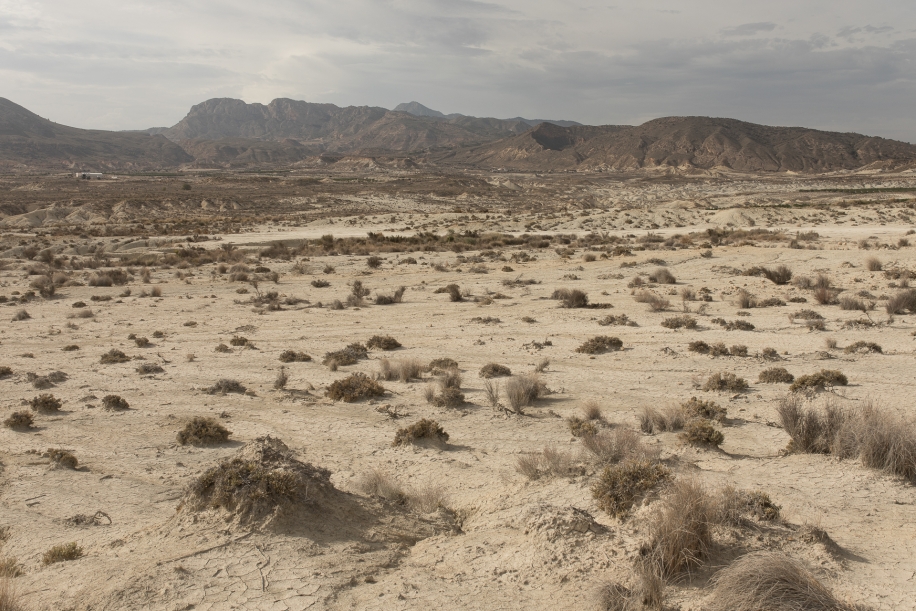

The Abanilla Desert, located in the southeastern Spain, is a clear example of desertification affecting the Murcia region. This arid and rugged landscape illustrates the significant environmental challenges, such as the lack of vegetation and water, faced by local farmers and communities. Despite the natural limitations, intensive agriculture remains a persistent activity in the area, exacerbating the desertification process over time.
Southeastern Spain, one of Europe’s driest regions, faces a high risk of water scarcity and desertification, with 75% of its territory at risk. Despite this, the agricultural sector consumes over 80% of the available water. The area has become a major hub for agricultural production, with significant irrigation investments, including desalination plants, wastewater treatment, reservoirs, and water transfer systems. These policies have facilitated a shift from rain-fed farming to large-scale intensive agriculture.
Spain is the world’s third-largest exporter of fruits and vegetables, emphasizing the importance of its agricultural sector. The irrigated area exceeds one million hectares, with notable regions like Murcia and Alicante. Artificial Intelligence is now used for water optimization, and genetic improvements help develop drought-resistant crops.
However, the region faces challenges, including soil overexploitation, aquifer contamination, and rising social inequalities due to the growth of large estates and powerful agricultural lobbies. The project aims to investigate water management in the context of climate change and desertification, focusing on tensions between intensive farming and the need for environmental and social sustainability.
Make Comment/View Comments